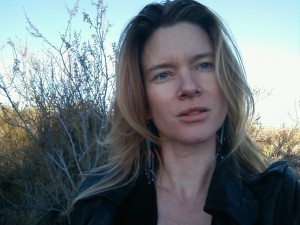the art of the creative pause (+ not being Amazon's bitch)
It's good to disrupt yourself on a regular basis.
My kids went to their father and I went to Palm Springs and Joshua Tree. I'd forgotten how much I love the desert. I felt drawn to it as a kid – to the New Mexico landscapes featured in Lois Duncan's YA novels, or Judy Blume's book TIGER EYES – and it was good to be reminded of that.
Shift your location, shift your perspective.
She ponders how far she is from Coffee Bean.

We get attached to ways of thinking. We don't realize that we need to change the frame.
So I'm writing this novel, and one day I'll finish it, and decide what I'm going to do with it. I read this piece about reasons not to self-publish. It's an intelligent, well-written article, and my mind kept circling back to it.
Something keeps nagging me about it. Something about the old-school frame that's shaping the writer's question ("self-publish or traditional publisher?") It's a good question. But is it the right, truly central question?
The problem is no longer getting published, but finding your readership.
Where and how are your right readers going to find you? How to initially catch their interest and make them care when they have a zillion other things to do?
"I don't want to be Amazon's bitch," this writer says: a reason why she seeks a traditional publishing contract for her first literary novel.
I don't want to be Amazon's bitch either. But I've been through the traditional-publishing thing (on the genre side), and I don't want to be anyone's bitch. William Goldman's famous words come to mind – he was talking about Hollywood, but they still seem appropriate:
Nobody knows anything.
It's a time, I think, for strategic improvisation. For what business theorist and jazz musician Frank Barrett describes as "fabricating and inventing novel responses without a pre-scripted plan and without certainty of outcomes; discovering the future that [your] action creates as it unfolds."
It's the ability not just to plan and act in real time, but to make adjustments, lean into what works and pivot away from what doesn't.
If you're locked into a traditional publishing contract for the next couple of years – and god knows what the publishing landscape is going to look like by the end of that (how many generations of e-readers will we have cycled through, advancing not just the technology but our comfort with it, our reliance on it?) – how, exactly, can you stay fluid enough to adapt as you need to?
When you sign that contract, how can you know what rights you need to fight for when the objects of those rights are in the process of…redefining themselves? How do you know that your books are going to be in bookstores when the bookstores themselves keep closing down and going under? What are the other places that might stock your book – drugstores, Target, Wal-Mart, airports? Are they likely to stock your book?
Don't get me wrong. I think traditional publishers are still a great way to go…especially if you've built up a platform on your own, and maybe sold enough self-published novels that demonstrate your healthy, growing readership. You're less likely to be someone's bitch if you've followed Seth Godin's advice and created your own media company. You've given yourself options (a.k.a. 'leverage').
And the interesting thing about finding your audience is that it involves finding yourself.
There's something to be said for that.
Writers feel such a sense of urgency when it comes to getting published – and that often works to our detriment. We submit manuscripts before they're ready. Or we do get published, and it turns out to be a mistake. We weren't yet the writer we were meant to become.
What if we took this time of uncertainty as a chance for a creative pause?
As a time for radical exploration and experimentation? While the publishing industry shakes itself out and the trailblazers forge new pathways and make mistakes — so that the rest of us don't have to?
As a chance to write whatever the hell we want, embrace mistakes of our own, and learn from them?
To get really fucking good?
And develop our own, drop-dead style?
(Because are you, right now, as good as you want to be? As singular as you need to be?)
In his book BRAND LIKE A ROCK STAR, Steve Jones observes that
There are very few Facebook-style overnight success stories to tell…Every band, and brand, needs that incubation time to refine their craft. Lennon and McCartney needed to figure out how to write songs together. Bob Dylan needed to meet Woody Guthrie and immerse himself in the folk counter-culture of Greenwich Village….
At some point every rock star brand finds that moment of transition when the kindling catches fire and the tiny flame becomes a massive blaze.
Maybe it's time to improvise your way forward by looping back to learn something you didn't quite get the first time. Maybe it's time to change the frame and ask yourself new questions about what a writing career might look like if it played uniquely to your strengths, not just as a writer but a blogger, speaker, online entrepreneur, multimedia producer. Etc.
Or maybe you just want to take some time to make that manuscript a freaking masterpiece.
And when the kindling catches fire, you'll be ready to blaze.








